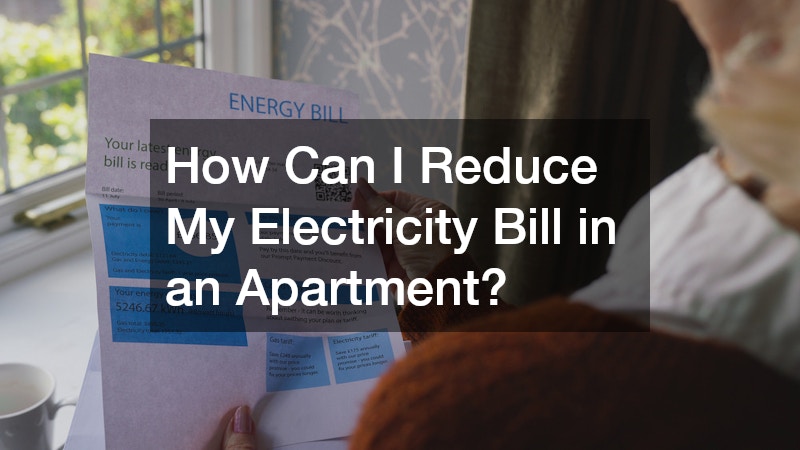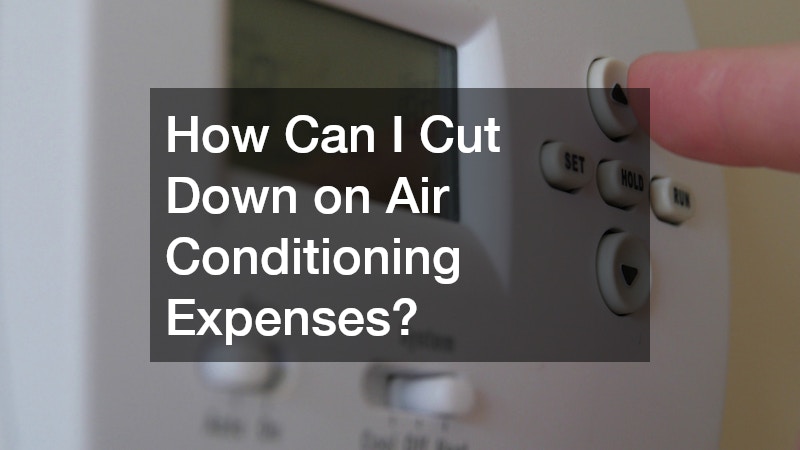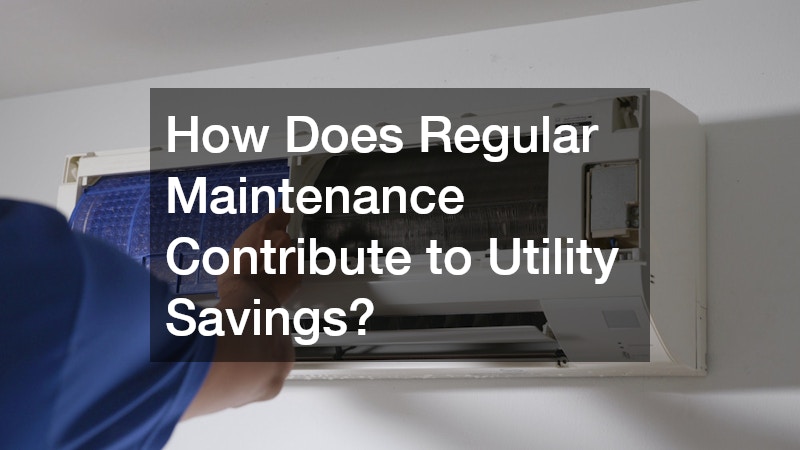
In today’s world, saving money on monthly expenses has become more important than ever. For apartment dwellers, one of the biggest recurring costs comes from utilities—electricity, water, heating, and cooling. These bills can add up quickly, especially in older buildings where efficiency may not be prioritized. The good news is that with the right strategies, you can significantly cut down your monthly costs without sacrificing comfort or convenience.
This article explores 10 practical and effective hacks that actually work when it comes to saving money on utilities. From smarter energy habits to technology-driven solutions, each section provides actionable advice you can start applying today. It also highlights how professional services such as local electricians, HVAC system experts, and even dryer repairs can help keep your apartment running efficiently.
How Can I Reduce My Electricity Bill in an Apartment?

Electricity is often the largest portion of an apartment’s utility bill. Reducing usage without impacting your lifestyle is possible with a few simple adjustments.
Energy-efficient Lighting Solutions
Switching to LED or compact fluorescent bulbs is one of the easiest ways to reduce electricity costs. These bulbs use a fraction of the energy consumed by traditional incandescent lights and last significantly longer. Even if your apartment already includes light fixtures, replacing bulbs is a tenant-friendly adjustment that pays off almost immediately. If your apartment’s electrical installation is outdated, consulting a local electrician can ensure that your lighting setup is optimized for efficiency and safety.
Smart Appliance Usage
The way you use your appliances makes a major difference. Running laundry machines with full loads instead of partial ones reduces energy waste. Avoid using ovens for small meals when a toaster oven or stovetop will suffice. Similarly, allow dishwashers to air-dry rather than relying on heated drying cycles. Small choices like these, repeated consistently, create noticeable savings.
Unplug Unused Electronics
Many devices continue drawing energy even when turned off, a phenomenon known as “phantom load” or “vampire power.” Unplugging electronics such as phone chargers, gaming consoles, and coffee makers when they are not in use prevents unnecessary energy consumption. An alternative solution is to group electronics by function—such as home office equipment—and turn them all off using a single switch.
Utilize Power Strips Effectively
Advanced power strips can cut electricity to devices that are not in active use. They are especially useful for entertainment systems or computer setups where multiple devices are connected. Instead of manually unplugging each item, a power strip allows you to shut everything down at once.
Monitor Energy Usage With Apps
Several apps and smart plugs allow you to track exactly how much energy different devices are consuming. With real-time monitoring, you can identify which appliances are draining the most electricity and adjust your usage accordingly. Many apps also provide tips for lowering consumption and alerts when certain thresholds are exceeded, empowering you to make informed decisions.
What Are the Most Effective Ways to Save on Water Bills in an Apartment?
Water bills may not seem as high as electricity costs, but over time, waste adds up. Simple modifications to your habits and fixtures can significantly lower expenses.
Install Low-flow Showerheads
A low-flow showerhead reduces the amount of water released without compromising water pressure. This single change can save thousands of gallons of water per year, cutting both water and heating costs if you typically take hot showers.
Fix Leaky Faucets Promptly
That steady drip from a bathroom sink or kitchen faucet may not seem urgent, but leaks can waste hundreds of gallons of water annually. Reporting issues to your landlord or fixing minor leaks with inexpensive parts is worth the effort. A local electrician is not necessary for plumbing concerns, but if the leak has caused damage to nearby electrical installation, it is wise to get a professional inspection for safety.
Opt for Cold Water Washing
Heating water consumes a large portion of energy. Washing clothes in cold water not only reduces electricity usage but also extends the life of fabrics by preventing shrinking and fading. Modern detergents are designed to work effectively in cold water, so this adjustment comes without trade-offs.
Use a Dishwasher Efficiently
Contrary to popular belief, dishwashers often use less water than washing dishes by hand, provided they are fully loaded. To maximize efficiency, avoid rinsing dishes excessively before placing them inside, and use eco-friendly settings whenever available.
Collect and Reuse Water
While not always feasible in every apartment, simple methods like collecting water from rinsed produce to water houseplants can make a difference. Being mindful of reusing water whenever possible builds sustainable habits and reduces unnecessary waste.
How Do I Manage Heating Costs?
Heating expenses can skyrocket in colder months, but with preparation and small lifestyle adjustments, you can stay warm without overspending.
Use Programmable Thermostats
Smart or programmable thermostats allow you to control the temperature more efficiently. Setting lower temperatures when you are away or asleep prevents unnecessary heating. Even a small reduction of two to three degrees can noticeably lower monthly bills.
Insulate Windows and Doors
Drafty windows and doors let warm air escape, forcing your heating system to work harder. Simple solutions like weatherstripping, draft stoppers, or thermal curtains help insulate your apartment without requiring permanent changes. In some cases, upgrading to a replacement window with better insulation can dramatically cut heating costs.
Dress in Layers at Home
Instead of cranking up the thermostat, wearing warmer clothing indoors can help you stay comfortable. Layering blankets on the couch or using area rugs on tile floors also prevents heat loss and makes living spaces cozier.
Tune-up Your Heating System
Regular maintenance ensures heating systems operate at peak efficiency. While landlords often handle major servicing, tenants should check if the HVAC system filters need changing. Hiring local HVAC services for seasonal tune-ups ensures maximum performance.
Block Drafts Effectively
Draft stoppers at the base of doors or removable caulking around windows help reduce cold air infiltration. Using spray foam insulation in areas with larger gaps (if permitted by your landlord) can also provide a longer-lasting solution.
How Can I Cut Down on Air Conditioning Expenses?

Cooling is often just as expensive as heating, especially during peak summer months. Strategic use of equipment and natural methods helps minimize costs.
Use Fans to Circulate Air
Ceiling and portable fans use significantly less electricity than air conditioners. When combined with moderate AC use, they distribute cool air more effectively, allowing you to raise your thermostat setting without sacrificing comfort.
Keep Blinds and Curtains Closed
Blocking direct sunlight during the hottest parts of the day prevents indoor temperatures from rising dramatically. Light-blocking curtains or reflective window coverings reduce the burden on your AC unit.
Maintain Your AC Unit
Changing filters regularly and keeping vents clear ensures air conditioners run smoothly. A clogged filter forces the system to work harder, using more energy. Scheduling an ac duct cleaning service with local HVAC services can also improve efficiency by removing dust buildup and improving airflow.
Set Temperature Limits
Instead of setting your AC to very low temperatures, aim for a moderate, consistent setting. Each degree lower significantly increases energy consumption, so striking a balance between comfort and cost savings is key.
Implement Zone Cooling
If your apartment allows, cooling only the rooms you use most often rather than the entire space can help cut costs. Portable units or strategically placed fans make zone cooling more effective.
What Smart Home Technology Can Help Save on Utilities?
Technology has transformed how we manage energy and water use, making efficiency easier than ever before.
Smart Thermostats
These devices learn your habits and automatically adjust temperatures for optimal savings. Many can be controlled remotely via smartphone, allowing you to manage energy use even when away from home.
Smart Lighting Systems
With voice control or automation, you can ensure lights turn off when not needed. Motion sensors are especially useful in high-traffic areas, preventing lights from being left on unnecessarily.
Water Usage Monitors
Smart water monitors can detect leaks, track usage patterns, and provide insights on ways to conserve. They are particularly helpful for identifying hidden issues that may be causing high water bills, especially in water heaters that may be overworked.
Energy Monitoring Plugs
These plugs track the exact consumption of connected devices. By understanding which appliances use the most energy, you can prioritize replacements or adjust usage habits.
Smart Appliances
From refrigerators that optimize cooling cycles to washing machines that adjust water usage, smart appliances are designed for efficiency. Some even connect with energy companies to operate during off-peak hours, saving money automatically.
How Do Energy Audits Help Reduce Utility Bills?
Understanding where energy is being wasted is the first step toward meaningful savings. Energy audits provide clarity and guidance.
Understanding an Energy Audit
An energy audit is a comprehensive assessment of your apartment’s energy use. It identifies problem areas such as poor insulation, inefficient appliances, or excessive water consumption.
DIY Energy Audits
Tenants can conduct simple checks themselves by identifying drafts, testing appliance efficiency, or using online calculators to estimate energy use.
Professional Energy Audits
Some utility companies offer professional audits at reduced costs or even for free. Professionals use specialized tools to pinpoint inefficiencies in HVAC systems, water heaters, and electrical installation that may not be visible to the untrained eye.
Prioritize Audit Recommendations
Not every recommendation from an audit needs immediate action. Prioritizing fixes that offer the highest return on investment ensures efficient use of time and money.
Follow-up Actions Post-audit
Reassessing your utility bills after implementing audit recommendations allows you to track progress. This continuous cycle of monitoring and improvement leads to long-term savings.
Are There Any Government Programs or Incentives for Saving on Utilities?
Government initiatives can ease the financial burden of improving efficiency.
Understanding Energy Subsidies
Many states offer subsidies for low-income households to offset utility costs. Checking eligibility requirements can help reduce expenses directly.
Enrolling in Energy Assistance Programs
Programs like the Low Income Home Energy Assistance Program (LIHEAP) provide aid for heating and cooling costs. Enrolling early ensures you receive benefits when needed most.
Applying for Rebates on Energy-efficient Products
Utility companies and governments frequently provide rebates for purchasing energy-efficient appliances, lighting, or insulation products such as spray foam or replacement window installations.
Tax Credits for Energy-saving Renovations
Certain renovations, such as upgrading insulation or installing smart thermostats, may qualify for federal or state tax credits. While landlords usually make renovation decisions, tenants can still benefit by encouraging upgrades.
Connecting With Local Utility Savings Initiatives
Local utility companies often run seasonal promotions or community initiatives encouraging reduced consumption. Signing up for alerts keeps you informed of opportunities to save.
How Does Regular Maintenance Contribute to Utility Savings?

Preventive care ensures your apartment’s systems run efficiently, avoiding costly waste.
Seasonal HVAC Maintenance
Regularly changing filters and ensuring systems are cleaned before peak seasons improves performance and lowers costs. Working with local HVAC services ensures your heating and cooling units remain in good condition year-round.
Plumbing System Checks
Inspecting for leaks or inefficient fixtures prevents water waste. Landlords often cover major repairs, but tenants benefit from reporting problems quickly.
Checking Insulation Integrity
Even in apartments, checking for worn weatherstripping or gaps around windows helps maintain consistent indoor temperatures. Applying spray foam around small cracks can help reduce drafts and energy loss.
Maintaining Appliance Efficiency
Cleaning refrigerator coils, defrosting freezers, and ensuring laundry machines are not overloaded prolong appliance life and reduce energy use. Regular dryer repairs not only improve safety but also enhance efficiency, lowering energy costs.
Scheduled Maintenance Reminders
Keeping track of routine maintenance tasks through reminders helps prevent inefficiencies from going unnoticed.
What Role Does Mindful Consumption Play in Reducing Utility Bills?
Utility savings are not just about equipment—they also come from everyday habits.
Conscious Energy Habits
Turning off lights when leaving a room and unplugging unused devices may seem small, but these actions build into significant savings.
Water-saving Behaviors
Taking shorter showers, not leaving taps running, and reusing water where possible reduce consumption effortlessly.
Reducing Vampire Power
Understanding which devices drain energy even when idle empowers tenants to unplug or use smart solutions more consistently.
Educating Family Or Roommates
Living with others means shared responsibility. Encouraging everyone to follow energy-saving habits ensures collective success.
Sustainability Practices
Mindful consumption not only reduces bills but also promotes environmental sustainability, creating a positive impact beyond financial benefits.
How Do Lifestyle Changes Assist in Lowering Utility Costs?

Adjusting how you live within your space has lasting effects on utility bills.
Embracing Minimalist Living
Owning fewer electronic devices, appliances, or decorative items requiring power reduces overall energy usage.
Adopting Work-from-home Efficiency Tips
For those working remotely, consolidating work hours, using natural lighting, and managing heating or cooling only in your workspace helps avoid unnecessary costs.
Promoting Natural Ventilation
Opening windows during mild weather instead of relying on the air conditioner improves air circulation while cutting costs.
Adjusting Daily Routines
Running appliances like dishwashers or laundry machines during off-peak hours can lower costs in areas where electricity rates vary by time of day.
Choosing Energy-efficient Furniture Arrangement
Placing furniture away from vents ensures heating and cooling systems work efficiently. Similarly, arranging workstations near natural light sources reduces reliance on artificial lighting.
Cutting down on apartment utility bills does not require drastic sacrifices. By making small but consistent changes—whether through mindful habits, smart technology, or professional help from local electricians and HVAC system specialists—you can significantly reduce costs while maintaining comfort. These strategies not only benefit your wallet but also contribute to a more sustainable lifestyle.
Start with a few changes today, track your progress, and enjoy the financial relief that comes with lower utility bills. Every small adjustment compounds into meaningful savings, helping you take greater control of your living expenses and future financial well-being.



